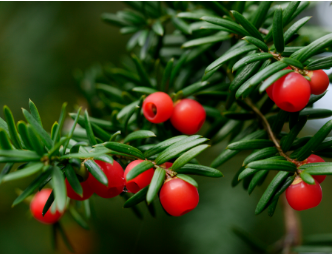
Breathing in traffic fumes is accepted as unhealthy, but whether landscaping with vegetation can protect people is a matter of debate. Modeling studies generally suggest that trees do not have a substantial beneficial impact on pollution levels, and may even worsen a situation by trapping pollutants in certain areas.
Now, a study finds that certain trees are surprisingly efficient in scrubbing toxic particles from the air. Wind tunnel experiments demonstrate that leaves trap considerable numbers of particiles with a diameter less than 100 nanometers. The gorup put nine tree species through their paces, with three clear winner in the top tier, the study, published May 16 in Environmental Science & Technology, finds.
Birch, the best-performing tree, removed 79 percent of these ultrafine particples from the air, while yew and elder each captured around 70 percent. Such trees could be planted at pollution hotpsots to quickly improve air quality, the scientists suggest.
Continue reading here.

